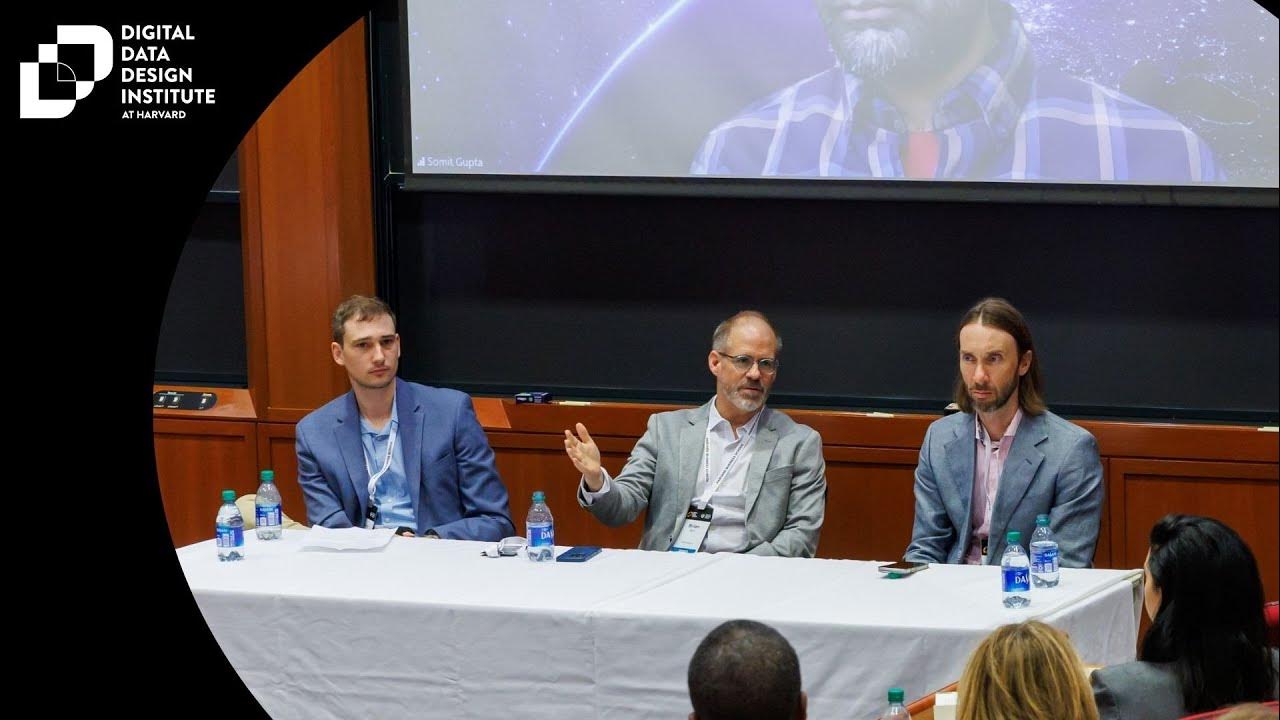#EPCA58 EPCA Session: Navigating Uncertainty: Is the future still bright? Opening & Leadership Forum
Summary
TLDRThe video features a panel discussion on the intersection of sustainability, regulation, and innovation in the European Union. Experts emphasize the need for a balanced approach to regulations that not only ensure compliance but also foster innovation. They discuss the importance of industry collaboration and stakeholder dialogue in navigating the complex landscape of sustainability. The panelists highlight the need for strategic investment in research and development to maintain competitiveness against emerging economies. The session concludes with a call to action for industry leaders to engage in ongoing discussions about sustainable industrial strategies.
Takeaways
- 🌍 The transition towards sustainable finance is crucial for achieving climate goals and involves significant changes in loan structures.
- 💡 Biobased investments contribute directly to sustainability targets and incentivize a shift from conventional loans to those linked to sustainability KPIs.
- 🕰️ There is a recognition that conventional industries will need ongoing financing for their transformations over the next few decades.
- 📜 The EU's regulatory framework is evolving, with frequent new regulations aimed at controlling industry practices while promoting sustainability.
- 🤝 Innovation must be prioritized alongside regulation; industry leaders are encouraged to engage in dialogue with legislators for a balanced approach.
- 🏭 Emerging economies often prioritize innovation first before addressing decarbonization, a strategy that could inform EU practices.
- 🔄 Continuous communication and collaboration between industry and regulatory bodies are essential for effective implementation of sustainability measures.
- 🌐 The importance of forming consortia among industry leaders to influence EU legislation is highlighted as a way to foster innovation.
- 📈 Singapore serves as an example of a country maintaining a significant industrial base while being selective about its industries to ensure sustainability.
- ☕ A coffee break was announced, followed by a reminder of the day's upcoming sessions, emphasizing the importance of networking and continued learning.
Q & A
What is the main focus of the panel discussion?
-The panel discussion primarily focuses on the intersection of sustainability, innovation, and regulation within the European Union, particularly how these elements influence industry practices and investment strategies.
How do biobased investments contribute to sustainability targets?
-Biobased investments are seen as direct contributors to sustainability targets because they promote environmentally friendly practices and help transition loan portfolios towards more sustainable projects.
What challenges does the speaker identify regarding innovation in the EU?
-The speaker identifies the challenge of being overly focused on compliance with rapidly changing regulations, which can hinder innovation efforts compared to emerging economies that prioritize innovation first.
What suggestion does V from Faber Group propose to industry leaders?
-V suggests that industry leaders form a joint consortium to petition the EU for a balance between necessary regulations and the promotion of innovation to address the concerns of stifling creativity due to compliance pressures.
Why is continuous dialogue between industry and legislators important?
-Continuous dialogue is important because it fosters a better understanding of the industrial landscape, helps align regulatory measures with innovation needs, and ultimately supports sustainable development goals.
What example does the speaker use to illustrate successful industrial strategy?
-The speaker cites Singapore as an example, noting that it strategically requires a significant percentage of its GDP to be based on industry while being selective about the industries it supports, thus balancing economic and sustainability goals.
What does the panel suggest about financing conventional industries?
-The panel acknowledges that conventional industries need financing as they transition to more sustainable practices, highlighting that this is a long-term process that will take one to three decades.
How does the panel view the role of regulations in fostering innovation?
-The panel views regulations as necessary for control and accountability, but emphasizes that excessive focus on compliance can lead to a defensive posture that stifles innovation.
What outcome do the panelists hope for regarding industry and regulatory bodies?
-The panelists hope for a collaborative environment where industry stakeholders actively engage with regulatory bodies to create a framework that encourages both innovation and sustainability.
What was the closing remark regarding the future of the discussions?
-The closing remark encourages participants to continue engaging in discussions about industrial strategy, sustainability, and to actively participate in the upcoming sessions of the event.
Outlines

This section is available to paid users only. Please upgrade to access this part.
Upgrade NowMindmap

This section is available to paid users only. Please upgrade to access this part.
Upgrade NowKeywords

This section is available to paid users only. Please upgrade to access this part.
Upgrade NowHighlights

This section is available to paid users only. Please upgrade to access this part.
Upgrade NowTranscripts

This section is available to paid users only. Please upgrade to access this part.
Upgrade NowBrowse More Related Video

GEF Madrid 2024: Navigating AI Legal Frontiers

TENCEL® The new age Fiber

Experimentation with Generative AI

Why is Spain's economy the envy of Europe?

Competitiveness: How can European Key Industries Compete in the Global Markets? | EUROPE 2025

ITCC June Education Session - Panel Discussion on accreditation
5.0 / 5 (0 votes)